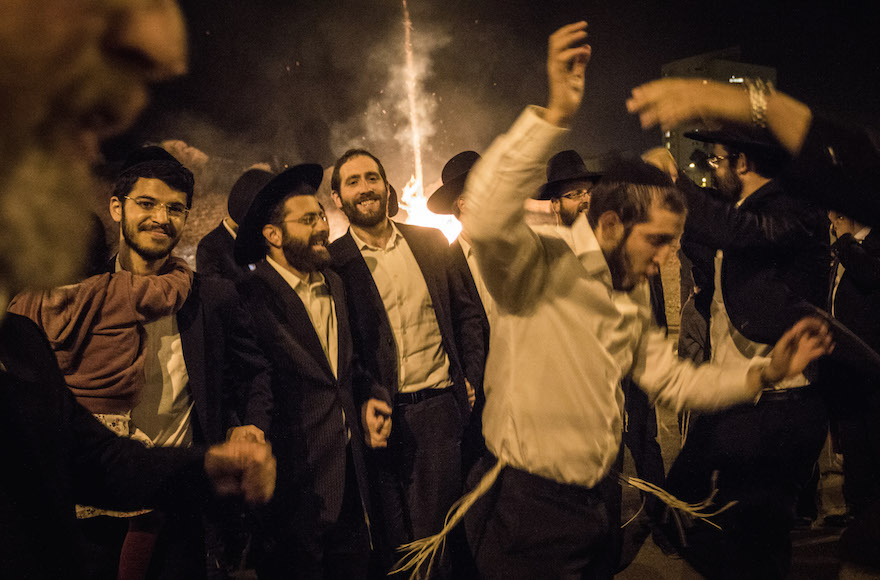JERUSALEM (JTA) — Israelis will be prohibited from the traditional practice of lighting bonfires on Lag b’Omer.
Lag b’Omer, which this year starts on Monday night and lasts for 24 hours, marks the 33rd day of the counting of the days between the holidays of Passover and Shavuot. It also marks the end of a minor mourning period recognizing the deaths of thousands of students of the second-century C.E. sage Rabbi Akiva.
Israel’s Cabinet on Wednesday night approved emergency regulations to prohibit the bonfires in order to prevent the transmission of the COVID-19 virus.
Traditional bonfires and other events that are held yearly at the tomb of Rabbi Shimon Bar Yochai on Mount Meron will be canceled this year. Instead, the Religious Services minister will allow three separate bonfires, each led by a prominent rabbi, in the area of the tomb to be held by special permit at different times. No more than 50 people will be permitted to participate in each bonfire, and women must be allowed equal participation.
No one will be permitted to enter the tomb and it will remain closed through May 17. The community of Meron will be open only to residents beginning on Thursday.
Lag b’Omer is the yartzheit of Shimon Bar Yochai, who was a disciple of Rabbi Akiva. (One interpretation says the bonfires are a symbol of the light he brought into the world.) Tens of thousands of mostly haredi Orthodox Jews converge on Meron on Lag b’Omer each year and spend the entire night and the following day lighting bonfires, giving first haircuts to boys turning 3 and celebrating.
The tomb at Meron is said to be the second most visited religious site in Israel following the Western Wall.
In 2018, the Fire and Rescue Service banned bonfires in great swaths of northern and central Israel due to a heat wave that also included windy conditions.
JTA has documented Jewish history in real-time for over a century. Keep our journalism strong by joining us in supporting independent, award-winning reporting.






